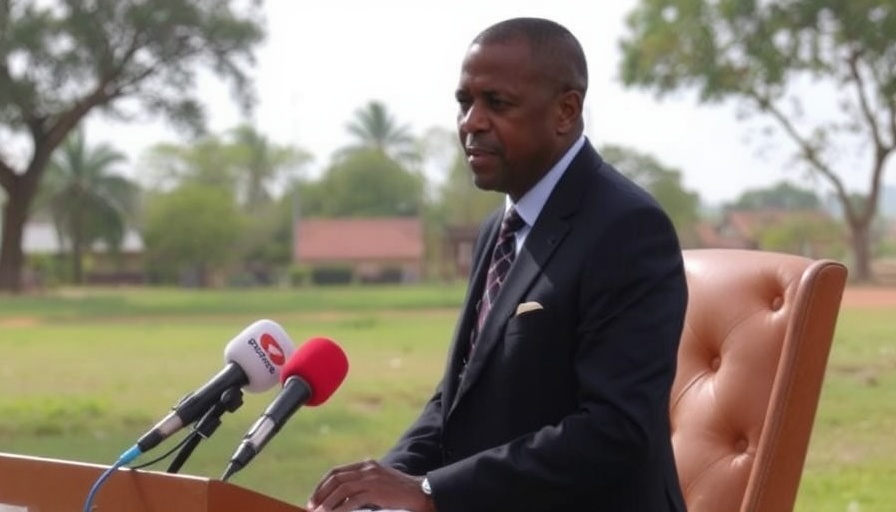
The Asbestos Scandal: Legal Maneuvers and Political Implications
In a significant turn within South African politics, Ace Magashule, the suspended ANC secretary-general facing charges related to a controversial asbestos project fraud, is gearing up for his defense. Magashule has stated his intention to summon 'key leaders' as witnesses in his favor, aiming to bolster his case amidst a whirlwind of allegations that have rattled the nation’s political landscape.
Contextualizing the Asbestos Project
The asbestos project, which was initially intended to provide more than just housing, has been framed as a scheme rife with corruption. Reports reveal that millions intended for housing improvements have instead been siphoned off through mismanagement and collusion. Magashule's role, particularly during his tenure as Free State premier, has placed him at the center of this storm, underscoring the intricate links between state contracts and political favoritism.
Funding Controversy: A State Responsibility?
One of the most pressing aspects of Magashule’s defense strategy is his request for state funding for legal representation. This raises pertinent questions about the intersection of public resources and personal accountability in corruption cases. Critics argue that utilizing taxpayer money to fund legal defenses for those implicated in corruption undermines public trust. A recent poll by the Institute for Justice and Reconciliation stated that 67% of South Africans believe that politicians should fund their own legal battles. This sentiment reflects growing discontent over how public funds are managed and the perceived lack of accountability among political leaders.
Impacts on National Politics and Public Trust
Magashule's trial is not just his individual plight but a litmus test for the ANC as it faces national elections in 2024. The ongoing corruption investigations put the party's commitment to transparency and governance under scrutiny. With increasing voter fatigue toward scandals, the ruling party must navigate this tumultuous terrain carefully. Additionally, contrasting narratives from opposition parties, primarily the Democratic Alliance (DA) and the Economic Freedom Fighters (EFF), challenge the ANC's narrative by promising more stringent governance and anti-corruption measures.
Future Political Landscape: Possible Outcome Scenarios
As the upcoming national elections loom on the horizon, three potential scenarios emerge from Magashule’s defense strategies and the ensuing court proceedings:
- ANC Strengthened: If Magashule’s defense succeeds, it could solidify loyalty within the party ranks, rallying members around a common cause.
- Political Fallout: Conversely, a guilty verdict could catalyze a leadership crisis within the ANC, leading to factionalism that could reshape the party's future.
- Institutional Reform: A third possibility lies in the potential demand for stronger mechanisms to combat corruption and restore faith in governance. This could dovetail with calls for comprehensive electoral reforms.
Public Sentiment and Calls for Accountability
The case against Magashule symbolizes a critical moment for the South African populace. As citizens grapple with issues like load shedding, unemployment, and lack of service delivery, the urgency for accountability in governance is palpable. Protests have erupted, voicing discontent against both local and national representatives who fail to meet the promised reforms that could alleviate prevalent societal woes.
Conclusion: A Call for Transparency and Integrity
The unfolding of this trial will serve as a defining moment for the ANC and, potentially, for the entire South African political landscape. As citizens, professionals, and political analysts observe closely, the implications extend far beyond Magashule. The ability to self-govern and uphold accountability lies at the very heart of democracy. It reinforces the need for collective advocacy around systemic reforms that prioritize public welfare over political ambition. As the nation watches, it is evident that both leadership and integrity will be paramount in shaping the country's future.
As South Africa approaches a pivotal election cycle, it's crucial for voters to remain informed and engaged in the political discourse. Your participation matters—ensure your voice is heard and hold your leaders accountable.
 Add Row
Add Row  Add
Add 




Write A Comment